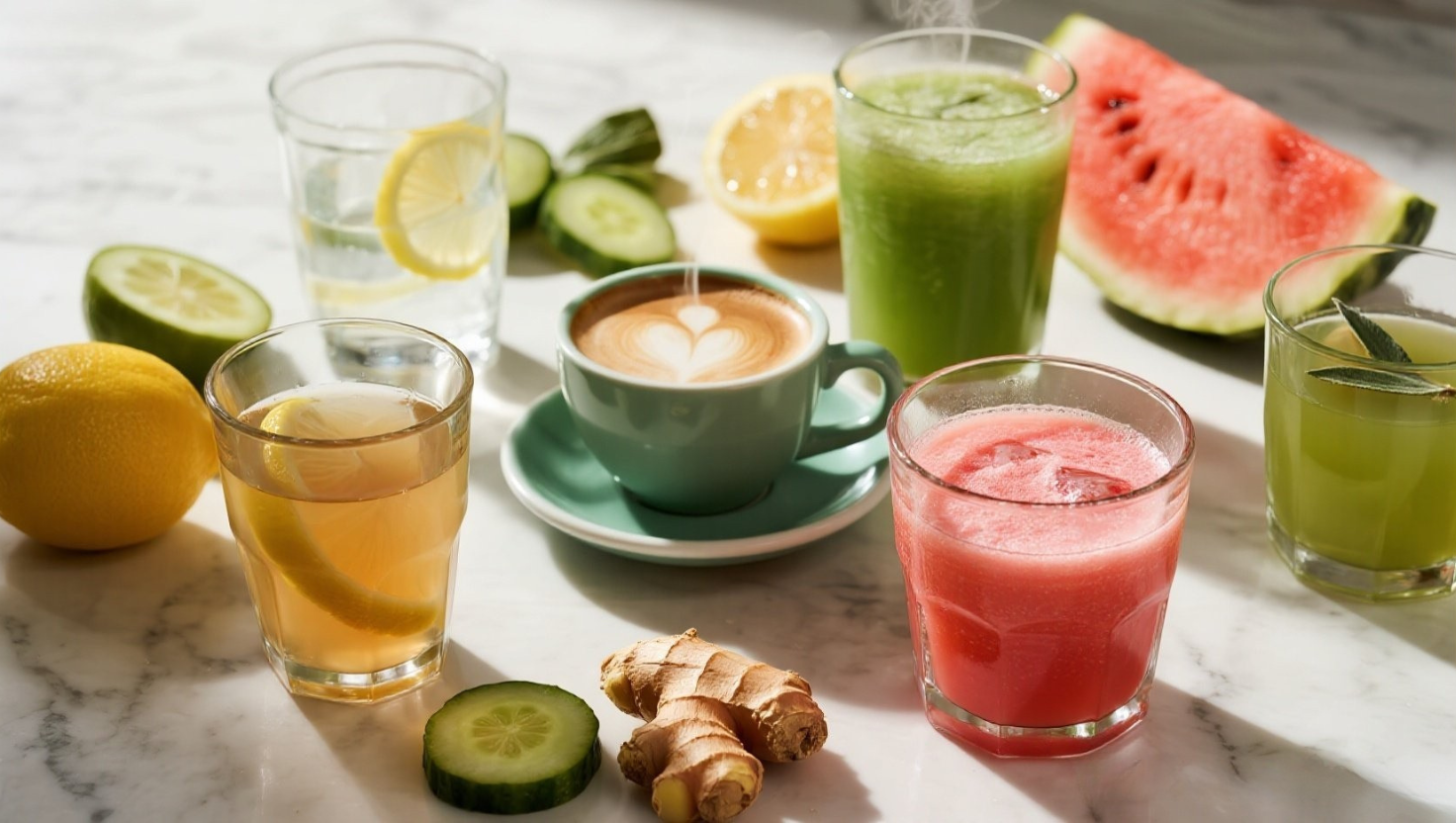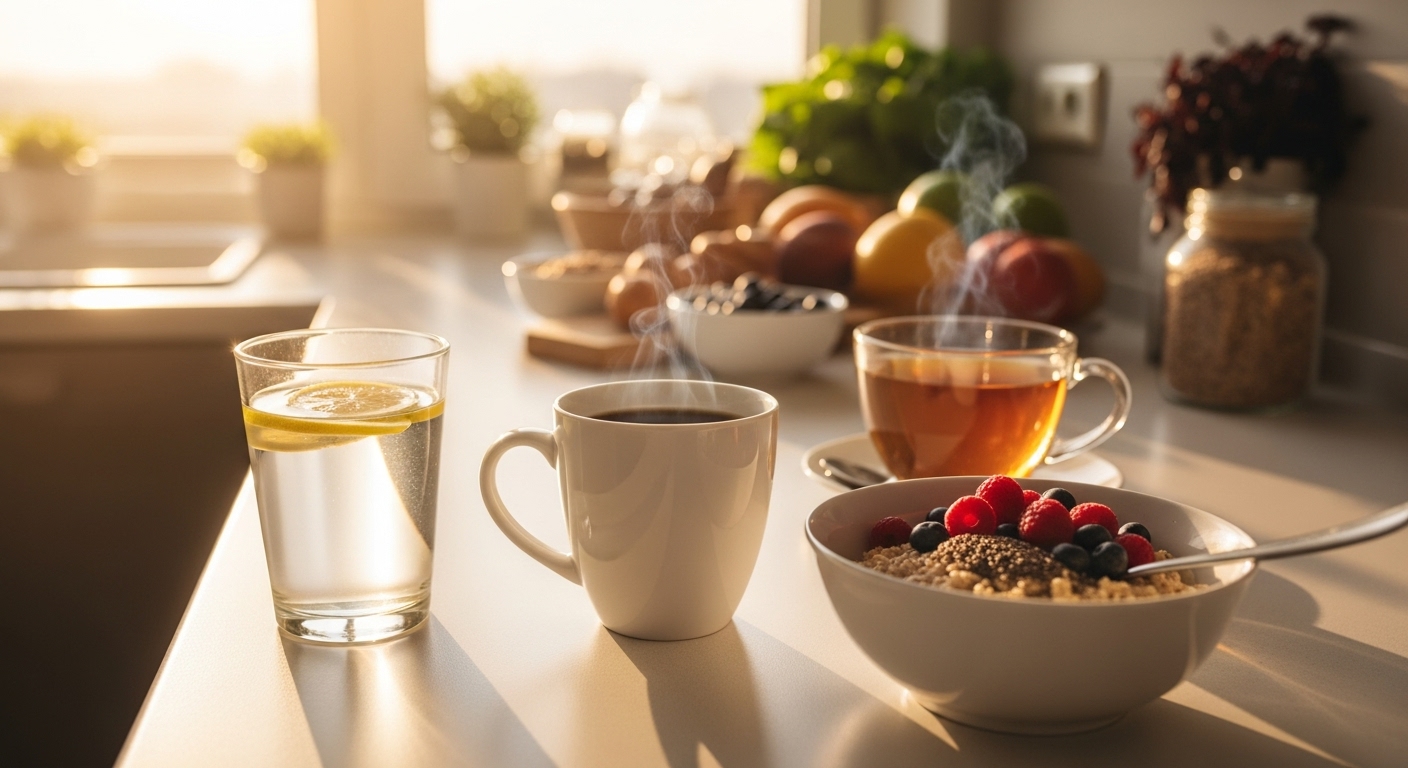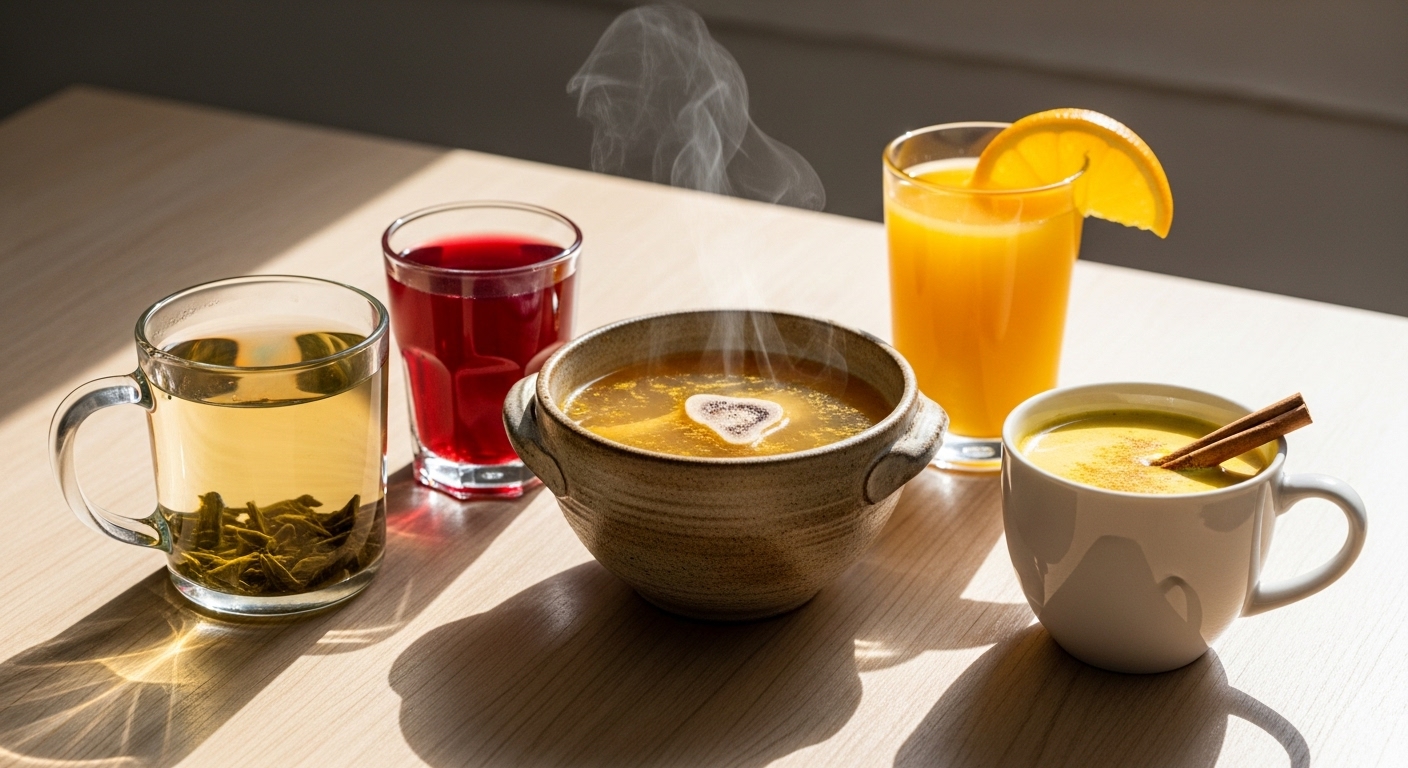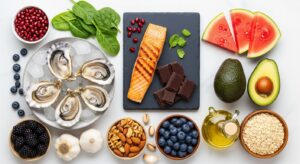7 Natural Drinks That Help Flush Out Uric Acid
High uric acid levels affect millions of Americans, leading to painful conditions like gout and kidney stones. While there’s no magic cure for elevated uric acid, incorporating specific natural drinks into your daily routine can significantly support your body’s ability to flush out excess uric acid and reduce inflammation. Here’s what recent research reveals about the most effective beverages for managing uric acid levels naturally.
Understanding Uric Acid and Why It Matters
Uric acid is a natural waste product created when your body breaks down purines—compounds found in certain foods and naturally produced by your cells. Normally, your kidneys filter about 70% of uric acid from your bloodstream and eliminate it through urine. However, problems arise when you consume too many purine-rich foods, drink excessive alcohol, or your kidney function becomes impaired.
When uric acid levels exceed 6.8 mg/dL, you develop hyperuricemia, which can lead to painful gout attacks and increase your risk of kidney stones. The good news? Strategic beverage choices can support your kidneys’ natural detoxification process and help maintain healthy uric acid levels.
1. Water: Your First Line of Defense
The Science: Staying properly hydrated is absolutely crucial for uric acid management. Research consistently shows that drinking adequate water helps your kidneys flush out uric acid more efficiently while reducing the risk of uric acid kidney stones.
How It Works: Water dilutes your urine, making it easier for your kidneys to expel uric acid while preventing the reabsorption of uric acid back into your bloodstream. During gout flare-ups, the Arthritis Foundation recommends increasing intake to 16 glasses daily.
Pro Tip: Keep a water bottle with you at all times and set hourly reminders to take a few sips. Aim for at least 8 glasses daily, adjusting based on your activity level and climate.
2. Coffee: More Than Just a Morning Pick-Me-Up
The Research: Multiple large-scale studies have found that coffee consumption is associated with significantly lower uric acid levels. A 2024 study showed that coffee reduced gout risk by lowering urate levels while increasing beneficial compounds in the blood.
How It Works: Coffee appears to work through two mechanisms: it competes with enzymes that break down purines, reducing uric acid production, and it speeds up the rate at which your body eliminates uric acid. Interestingly, both regular and decaffeinated coffee show benefits, suggesting that non-caffeine compounds are responsible for the protective effects.
Optimal Intake: Studies suggest 1-2 cups daily provide the most benefit. Long-term coffee drinkers who consume 4-6 cups per day show even lower gout risk, but moderation is key for most people.
3. Lemon Water: A Vitamin C Powerhouse
The Evidence: Research from 2019 and 2021 demonstrates that lemon water helps neutralize uric acid in the body and supports healthy uric acid levels. The high vitamin C content in lemons plays a crucial role in this process.
How It Works: Vitamin C helps your body break down and eliminate excess uric acid while supporting kidney function. A 2021 study found that high vitamin C intake can help lower uric acid levels, though more research is needed to fully understand the mechanism.
Best Practice: Start your morning with the juice of half a lemon squeezed into a glass of warm water. This simple ritual can kickstart your body’s natural detoxification process.
4. Cucumber Juice: Nature’s Hydrating Detox
Why It Works: Cucumbers are 90% water, making them excellent for promoting hydration and toxin elimination, including uric acid. They’re also extremely low in purines, meaning they won’t contribute to the problem.
Additional Benefits: Cucumbers have natural alkalizing properties that may help neutralize excess acid in your body. Their high water content supports kidney function and helps maintain proper fluid balance.
Preparation: Blend one cucumber with a small amount of water and a squeeze of lime juice for added vitamin C. This refreshing drink is perfect for hot days when you need extra hydration.
5. Watermelon Juice: Summer’s Secret Weapon
The Research: While specific studies on watermelon and uric acid are limited, its high water content and low purine levels make it an excellent choice for supporting kidney function and uric acid elimination.
How It Helps: Watermelon’s primary component is water, which helps your kidneys flush out excess uric acid more effectively. Its natural sweetness comes from fructose, but in much lower concentrations than processed sugary drinks.
Serving Suggestion: Blend fresh watermelon for a naturally sweet, hydrating beverage that supports your body’s detoxification processes without adding problematic purines.
6. Ginger Tea: Anti-Inflammatory Support
The Science: While direct research on ginger and uric acid is ongoing, ginger’s well-documented anti-inflammatory properties make it valuable for managing gout-related inflammation and discomfort.
Preparation: Simmer fresh ginger slices in hot water for 10-15 minutes. Add a touch of honey if desired, but avoid excessive sweeteners that could counteract the benefits.
Best Time: Enjoy ginger tea in the evening as a soothing, anti-inflammatory wind-down drink that supports overall joint health.
7. Green Tea: Antioxidant-Rich Support
The Research: Studies on green tea and uric acid show mixed results, but recent research suggests that lighter-fermented teas like green tea may be more effective at inhibiting uric acid production than heavily fermented varieties.
Active Compounds: Green tea contains powerful antioxidants, particularly catechins and gallic acid, which may help reduce uric acid production by inhibiting xanthine oxidase, the enzyme responsible for uric acid synthesis.
Optimal Consumption: 1-2 cups of unsweetened green tea daily may provide benefits. Choose high-quality loose leaf tea for maximum antioxidant content.
Drinks to Avoid
Sugary Beverages: Research consistently shows that fructose-containing drinks significantly increase uric acid levels. A large-scale study found that each additional serving of sugar-sweetened soft drinks per day increased uric acid levels and hyperuricemia risk substantially.
Alcohol: Beer is particularly problematic due to its high purine content, but all alcohol interferes with kidney function and uric acid elimination. If you choose to drink alcohol, do so in moderation and prioritize water intake.
High-Fructose Fruit Juices: While whole fruits can be part of a healthy diet, concentrated fruit juices often contain excessive fructose levels that can spike uric acid.
Maximizing Your Success
Timing Matters: Spread your fluid intake throughout the day rather than consuming large amounts at once. This maintains consistent hydration and supports steady kidney function.
Quality Counts: Choose organic ingredients when possible, and avoid adding excessive sugars or artificial sweeteners that could counteract the benefits.
Monitor Your Response: Keep track of how different beverages affect your symptoms and uric acid levels. Everyone’s body responds differently, so personalized adjustments may be necessary.
Complement with Diet: These beverages work best as part of a comprehensive approach that includes limiting high-purine foods, maintaining a healthy weight, and following medical recommendations.
The Bottom Line
Managing uric acid levels naturally requires a multi-faceted approach, and the right beverages can play a significant supporting role. While these drinks can help support kidney function and reduce inflammation, they’re not a replacement for medical treatment when needed.
The combination of proper hydration, anti-inflammatory compounds, and vitamin C from these natural beverages creates a powerful toolkit for supporting your body’s natural uric acid management systems. Start with increasing your water intake, then gradually incorporate other beneficial drinks based on your preferences and tolerance.
Remember to work with your healthcare provider to develop a comprehensive plan that includes appropriate medications, dietary modifications, and lifestyle changes. With the right approach, you can take meaningful steps toward better joint health and reduced gout risk.
Key Takeaway: Consistency is crucial. These natural drinks work best when consumed regularly as part of a healthy lifestyle, not as occasional remedies. Start small, stay consistent, and give your body time to respond to these positive changes.














Post Comment